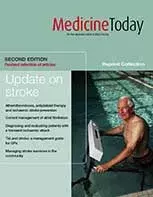Atherothrombosis, antiplatelet therapy and ischaemic stroke prevention
CHRISTOPHER R LEVIStrategies to prevent the development of atherosclerosis and mitigate the formation of surface thrombus on atherosclerotic plaque can potentially translate into substantial reductions in the risk of ischaemic stroke.
Current management of atrial fibrillation
DAVID GALLAGHERMost patients with atrial fibrillation will need rate control therapy and anticoagulation. GPs can initiate these therapies in stable patients. Rhythm control, new antithrombin agents and catheter ablation techniques are also discussed.
Diagnosing and evaluating patients with a transient ischaemic attack
CHRISTIAN SKULINA, LEO DAVIESA transient ischaemic attack (TIA) is not a benign event and should under some circumstances be treated as a medical emergency. Failure to adequately recognise and evaluate this warning sign could mean missing an opportunity to prevent permanent disability or death.
TIA and stroke: a management guide for GPs
HENRY MA, JOHN LY, GEOFFREY A DONNANWith the availability of level I evidence showing that the burden of stroke may be reduced by specific strategies for the acute phase and secondary prevention, management is changing rapidly.
Managing stroke survivors in the community
STEVEN FAUXA stroke can transform a person physically, socially and psychologically. The community care of stroke survivors includes promoting independent living, preventing further strokes and caring for the carers.

